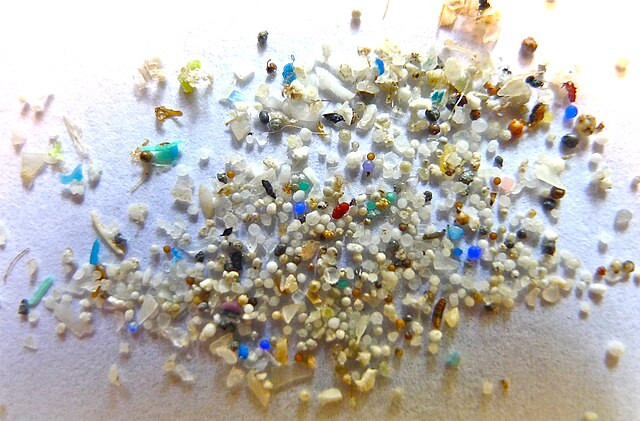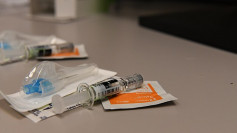A new study has revealed that microplastics were found in every human and canine testicle examined, raising concerns about the potential impact on male fertility. The research, published in the journal Toxicological Sciences, tested 23 human testes and 47 testes from pet dogs, discovering microplastic pollution in every sample.
While the human testicles had been preserved, making it impossible to measure their sperm count, the researchers were able to assess the sperm count in the dogs' testes. They found a correlation between higher levels of PVC contamination and lower sperm counts, although further research is needed to prove a causal relationship.
The findings come amid growing concerns about the decline in sperm counts among men over the past few decades. Many studies have implicated chemical pollution, such as pesticides, as a potential cause. The discovery of microplastics in human blood, placentas, and breast milk has also raised questions about the widespread contamination of people's bodies and the potential health impacts.
Prof Xiaozhong Yu, one of the study's co-authors from the University of New Mexico, admitted to being surprised by the results. "At the beginning, I doubted whether microplastics could penetrate the reproductive system," he told The Guardian. "When I first received the results for dogs I was surprised. I was even more surprised when I received the results for humans."
The human testicles analyzed in the study were obtained from postmortems in 2016, with the men ranging in age from 16 to 88 when they died. Yu expressed concern about the potential impact on younger generations, given the increasing amount of plastic in the environment since the samples were collected.
The study found that the human testicles had a plastic concentration nearly three times higher than that found in the dog testes, with 330 micrograms per gram of tissue compared to 123 micrograms. Polyethylene, commonly used in plastic bags and bottles, was the most prevalent microplastic found, followed by PVC.
"PVC can release a lot of chemicals that interfere with spermatogenesis and it contains chemicals that cause endocrine disruption," Yu explained. The human testes samples were routinely collected by the New Mexico Office of the Medical Investigator and made available after a seven-year storage requirement, after which they are usually discarded.
The findings of this study echo those of a smaller study conducted in China in 2023, which also found microplastics in six human testes and 30 semen samples. Recent studies in mice have also reported that microplastics reduced sperm count and caused abnormalities and hormone disruptions.
Microplastics, which are plastic particles with a diameter less than 5 mm, and nanoplastics, which range in diameter from 1 to 100 or 1000 nm, have been found to be pervasive in the environment. They can be ingested or even inhaled, with humans breathing in the equivalent of a credit card-sized amount of microplastics per week, according to a June 2023 study.
The potential health impacts of microplastic contamination are still largely unknown, but recent studies have raised concerns. Microplastics have been found in mice brains after only four weeks of exposure, and plastic from bottles and bags has been discovered in every human placenta studied. Another alarming study found that the average bottle of water contains a quarter of a million pieces of plastic.
As Bernardo Lemos, an adjunct professor of environmental epigenetics at the Harvard T.H. Chan School of Public Health, noted, "There are so many unknowns, but we are seeing more data that suggest microplastics affect human biology."






